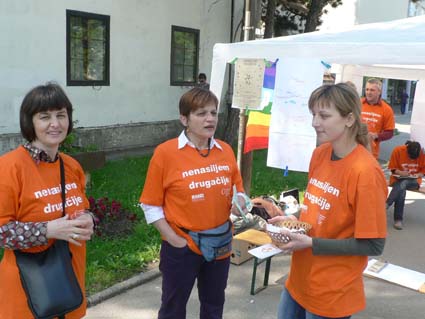
During the Balkan war Ana and Otto Raffai from Zagreb asked themselves: "What can we personally do to achieve peace?" They participated in a training program in Nonviolent Conflict Management offered by the association gewaltfrei handeln in Wethen, Germany and they themselves began to offer courses and seminars in Croatia.
One of RAND's priorities is to give training courses, where participants can acquire expertise on the subject and get the opportunity to raise self-awareness about "how to create and maintain peace". They organize rooms where people meet and are able to work on their experiences in a structured way. At the seminar participants learnpractical skills as well as theoretical knowledge.
Since participants come from multiethnic and multireligious contexts, the question arose, what role faith plays in the process of reconciliation between conflicting ethnic groups of the region.
As a consequence, interreliigous work became the second pillar of RAND's activities. Together with believers of Islamic and Christian (Catholic, Orthodox, Protestant) faith, RAND established a network called "Believers for Peace." The network organizes interreligious peace conferences under the title "Through Building Peace, We Praise God" and invites people from the region and Western Europe to participate. Furthermore, RAND organizes inter religious meetings combining interreligious dialogue with methods of nonviolent communication.
RAND offers a "training for trainers." Emphasis on topics such as: "How do I deal with conflict in a group" and "How do I manage training work without evaluations" From these sessions a guide book emerged with exercises and texts for the trainers ofconflict transformation. They annually organizes an international day for non-violence in different cities, at which they make living with non-vioence an experience through different activities.